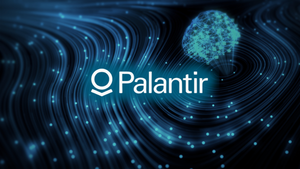Microsoft’s deal for Three Mile Island energy shows investors just how voracious AI can be

In a move driven by the demand for energy that AI is creating, Microsoft Corp. has entered into a multidecade agreement to purchase 100% of the energy to be produced by a reopened Three Mile Island nuclear plant in Pennsylvania, which famously suffered a partial meltdown in 1979,
The deal will allow the plant’s owner, Constellation Energy, to invest more than $1.5 billion to restart the facility that was shut down in 2019. The project is the latest in a string of sustainable energy deals announced by Microsoft MSFT in recent months as the company struggles to meet demand driven by artificial intelligence technology.
Earlier in September the company announced a joint venture with Blackrock and Abu Dhabi’s MGX to invest as much as $100 billion into AI data centers. The new initiative will primarily focus on projects in the U.S.
“We are committed to ensuring AI helps advance innovation and drives growth across every sector of the economy,” said Satya Nadella, Microsoft’s CEO in a press release, adding that the new partnership will be focused on sustainable energy infrastructure.
The deals highlight three important trends that investors will need to watch when it comes to AI:
- AI technology is expected to dramatically increase global electricity consumption. That has implications for utility companies like Constellation, infrastructure companies that build and maintain the grid, and tech corporations like Microsoft.
- As that electrical demand skyrockets, there is likely to be a renewed focus on the use of nuclear power in the United States, where it remains controversial.
- With data centers soaking up so much power, there is likely to be more emphasis on sustainable energy generation, especially on the part of impact investors.
Microsoft has been a leader in the decarbonization movement within the technology sector, with a published goal of being carbon negative by 2030. Achieving this target is becoming more difficult as AI demand requires ever increasing data capacity.
In a regulatory filing for the fiscal year that ended in June, Microsoft estimated that capital expenditures tied to new AI data centers exceeded $50 billion. The company forecasts even greater spending in the current year.
In a report issued in January, the International Energy Agency projected that the power consumed by AI and crypto data centers will double by 2026, reaching 1,000 Terawatt hours annually — roughly equivalent to the total electricity consumed by Japan.
Microsoft not the only nuclear proponent
In the race to power AI, Microsoft is not alone in embracing nuclear. In March, Amazon AMZN subsidiary AWS acquired Talen Energy’s nuclear data center campus. As part of the transaction Talen agreed to supply energy for the facility with a 10-year contract.
One factor contributing to the adoption of nuclear power by big tech are a series of tax credits included in the Inflation Reduction Act. The legislation, a signature Biden administration bill that became law in 2022, provides tax credits for zero-emission electricity produced by existing nuclear plants.
In a research report published this week, UBS analysts speculated that the U.S. energy producers may start seeking approval to build new nuclear plants in the near-term. “Given expected power demand, especially baseload power for AI, we are likely to get there sooner rather than later,” the analysts wrote.
Read more: Is AI a friend or a foe of the environment?
More News
View More




Recent Quotes
View More
Quotes delayed at least 20 minutes.
By accessing this page, you agree to the Privacy Policy and Terms Of Service.